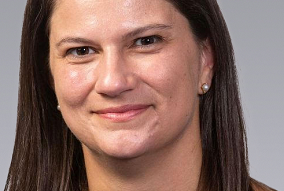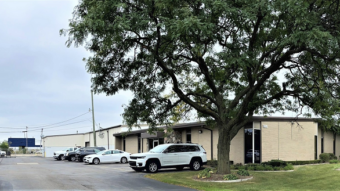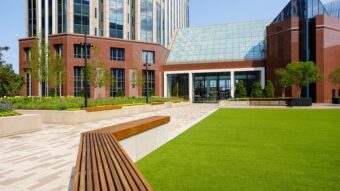In markets throughout the U.S., industrial distribution and warehouse spaces valuation has risen over the past 12 months. The Chicago market, however, saw a moderate decline in pricing over that same time period.
According to an Avison Young Industrial Investment Review, which analyzed data from Real Capital Analytics from Q4 2018 to Q3 2019, the average price per square foot for Chicago-area industrial space slid to $73, a drop of 3.8 percent.
Contrast that with the Dallas market which has surged ahead by 20 percent to $85 per square foot over the past 12 months. Other markets also saw increases; for example the New York/Northern New Jersey market—the largest population center in the U.S. and a strong area for port activity—rose 15.9 percent to $167 per square foot.
South Florida’s population growth, along with robust port activity, saw an increase of 14.8 percent in the Miami market to $140 per square foot. Los Angeles rose by 11.6 percent to $168 per square foot while the Inland Empire jumped to $123 per square foot, a 7.5 percent increase.
“The industrial market has seen significant investment activity over the past five to seven years and continues to attract a steady flow of capital, particularly in large urban markets tied to e-commerce growth,” said Erik Foster, Avison Young principal and leader of the firm’s national industrial capital markets group. “We’re seeing a continued focus on acquiring well-located distribution and warehouse assets, including those in the growing food services sector.”
Moving toward 2020, the overall U.S. industrial market should expect to incur steady investment, particularly in markets tied with large population centers and with a good supply of logistics and e-commerce space. Despite the recent dip in sales, Chicago remains a strong industrial performer. The market should see renewed capital flowing in next year.
“Investors are looking more at core markets at this stage in the economic expansion and are finding that many assets have traded hands, including many that were sold as part of large portfolio sales,” said Foster. “At this stage in the economic cycle, there also are some investors taking a pause after significant acquisition activity.”
Between the fourth quarter of 2018 and the third quarter of 2019, Chicago’s industrial sales volume was a steady $5 billion. Approximately 66.5 million square feet traded hands during that time, including several in the growing food services and cold storage sector.
One large industrial sale last quarter was the 280,500-square-foot warehouse at 930 W. Evergreen Avenue on Chicago’s Goose Island. Greenfield Partners purchased the property, leased to UI Labs Digital Manufacturing and Mars Global Services, from Mars, Inc. for $73.3 million.
Among the other notable food-related industrial sales during the third quarter of 2019 was the 227,043-square-foot Preferred Freezer Services building at 2357 S. Wood Street in the city’s Pilsen neighborhood. The cold storage facility was acquired by Lineage Logistics from Gramercy Property Trust (owned by The Blackstone Group) for $68.7 million in August.
There was plenty of activity in the suburbs as well. Broadstone Net Lease, Inc. acquired the 443,493-square-foot Fresh Express-Chiquita building at 1109 E. Lake Street in Streamwood, Illinois from Angelo Gordon in September. That property traded for $58.3 million.
A diverse collection of investors targeted the Chicago market, at least over the last 24 months, institutional investors comprising 36.1 percent industrial buyers; 31.4 percent of funds came from private investors while REITS accounted for 15.6 percent of investment. Private investors made up the plurality of sellers at 48.1 percent, with institutional investors selling 29.2 percent of the properties.
The top buyers in the Chicago market over the past 24 months were Prologis with $1.36 billion across 43 properties, Blackstone with $1 billion across 60 properties and BREIT, a New York-based REIT, with $454.3 million across 46 properties.



